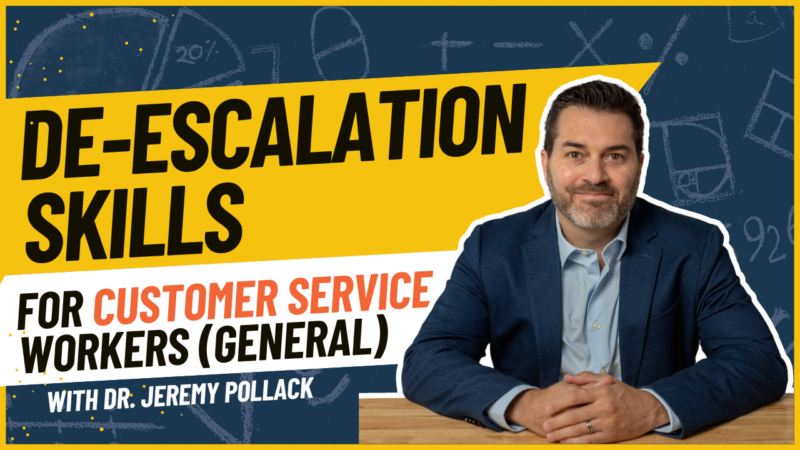Table of content
Being a member of a customer support team is a very challenging and stressful job. When the company meets or exceeds customer expectations, the customers keep buying products, or else they click “like” on social media. When things do not go well, however, it is the customer service team that has to hear about it.
On any given workday as a customer service agent, you do not hear a peep out of the company’s 999,900 most satisfied customers, but you do hear from its 100 least satisfied customers. These are the 6 most common customer service challenges that customer service agents face, and how customer service representatives can respond to them and provide customer satisfaction whenever possible.
1. Angry Customers Take Out Their Frustrations on You
Everyone who has ever worked in a public-facing job has dealt with the occasional angry customer every now and then. If your professionalism is sufficient for your employer to have hired you, then you can keep smiling and providing great customer service to the customers with whom you interact.
One grouch does not ruin your day. If the angry customer is especially grouchy, you might even be able to laugh it off with your coworkers after work and enshrine this customer (let’s call him He of the Unreasonable Customer Expectations) in the difficult customer hall of fame.
By contrast, every employee on the customer support team encounters multiple customers in a single shift who are steaming mad and want to give the customer service agent a piece of their mind. In the worst cases, angry customers just want to vent their frustrations to whichever hapless customer service rep happened to pick up the phone. They don’t even want to listen, and any solution that customer service reps try to offer just seems to make them madder.
Customer Service Agents Are Only Human, But It’s Time to Turn on the Charm
When irate customers start catapulting negative customer feedback in your direction, you should use the HEARD technique. This customer support strategy originated in the Disney Theme Parks, where quality customer service means trying to exceed customer expectations about the proverbial “Happiest Place on Earth.” HEARD stands for Hear, Empathize, Apologize, Resolve, Diagnose.
In other words, first, hear the customer out. Let her describe the problem from beginning to end, and don’t interrupt. Then acknowledge the customer’s frustration and signal your willingness to help. Acknowledge your company’s role in creating the problem. Only then should you propose the solution and advise the customer on what to do in the future to prevent the problem from recurring.
Employing the HEARD method can be a major customer service challenge because it seems counterintuitive if you were hired to solve technical problems. Remember that the customer experience is part of your job description. Don’t just say, “Press control alt delete,” and certainly don’t say anything that comes across sounding like, “Press control alt delete, dummy!”
Angry customers do not get any less angry when you tell them point-blank that they caused their own problems or that any reasonable person could have avoided the problem. Charm is as important job skill for customer service agents as technical know-how.

2. Dealing With Umpteen Calls About a Service Outage
One of the biggest customer service challenges is dealing with a service outage that affects numerous customers all at the same time. You never realize how much customer loyalty your company has built up until dozens of customers call you all at the same time, panicking because the service that you provide them has been interrupted.
To tell all of them, “It’s great to know how much you love us, but I can’t help you now because the system is down” would make for a poor customer service experience indeed. It is still your job to provide customer support, even when you cannot immediately solve the problem.
Being the Bearer of the Same Bad News to Many Customers
Service outages are one of the most common customer service challenges for employees tasked with the support process for Internet service providers or utility companies.
Remember how annoying it used to be when you would go on road trips with your family, and your kids would ask some version of, “Are we there yet?” every few minutes from San Diego to the Oregon border? Imagine that the electricity is out in the entire city because of a huge storm, and you get hundreds of calls asking, “When is the power coming back on?”
In situations like these, you can predict the customer’s issue with near-perfect accuracy before you even pick up the phone. Meanwhile, you are getting paid to do customer service, so even if you are as annoyed by the darkness and the lack of air conditioning as everyone else, you must keep kayfabe and act as though every customer’s question is extremely important.
Customers are only human, but so are the customer support reps who provide excellent customer service day in and day out. HEARD doesn’t exactly work in this case. Customers expect you to work miracles, but all you can do is hear, empathize, acknowledge, and say something along the lines of, “That’s the breaks.”
If you are a relentless optimist you might be able to view service outages as relationship-building opportunities. You may not be able to turn the power back on before the damaged electrical lines get fixed, but at least you answered the phone and kept the communication channels open.
Once the air conditioning is back on, the first customer you took the time to talk to, and the other customers you treated with kindness and empathy even though you, too, were sweltering in the dark, will remember your good customer service long after they have gone back to taking reliable electrical power for granted. Your friendly voice was precisely what the customers needed during the outage.
Of course, after enough challenging customers call you and say, “Do something about it now, you good-for-nothing cubicle drone,” it may be time to change your strategy before you say things you regret during a call that may be monitored for quality and training purposes. In this case, using the right tools could mean routing calls to a pre-recorded message of your crisis communication plan. It is exhausting for humans to repeat the same disappointing news to hundreds of customers in rapid succession, but recorded messages are in their element when doing exactly that.

3. The Customer Demands a Discount That You Don’t Have the Authority to Give
Another customer service challenge that you may encounter is when a customer asks you point blank to reduce the price of a product or service that your company provides. How common these types of customer service challenges are varies from one industry to another.
If you work at a car dealership, for example, the prices are not set in stone, and negotiating in order to get discounts wherever you can find them is a normal and expected part of the customer experience. If your company charges the same prices to everyone and rarely offers promotional discounts, then “no” is the right answer, but saying “no” in the best way is the biggest challenge that requires the necessary tools.
This issue is one of the top customer service challenges, though, if your company varies its prices according to many variables, which are recorded in the customer data. It is truly a remarkable feat to say, “Yes, this discount exists, just not for you,” and still emerge from the experience with the customer feeling that you are helpful.
Offering an Alternative Solution That You Can Provide
Customers interact with human beings when they call customer support lines. If this was not their intention, then they would just search your company’s website to find out which discounts are available to them.
In customer interviews, a frequent complaint is when even the best companies have their customer support personnel respond to requests with, “I don’t make the rules” or some other expression of passing the buck. If you review chat logs of your own interactions with customers, do you come across as sounding like a soulless bureaucrat?
You know that money doesn’t grow on trees, or else you wouldn’t be working at a customer support call center. The “gimme a discount” calls are an opportunity for you to empathize and turn potential customers into loyal ones. Suggest other ways that the customer can save money. If you help one customer save money, he or she may refer several customers to you, increasing your company’s revenues in the long term.
4. The Customer Expects You to Be Omniscient
You are skilled at rising to the occasion, no matter which service challenges come your way. You have the right tools to recommend the best service level agreement. You do not, however, know everything. Sometimes, though, customers take it personally when you do not know the answers to all of their questions.
Is It Appropriate for Customer Support Agents to Say “I Don’t Know”?
It isn’t your job to be omniscient, but it is your job to find out the answers to questions that are outside of your knowledge base. You can start by reviewing chat logs of customers’ previous interactions with the company. You may need to refer a customer to a coworker who is in a better position to solve the problem.
Sometimes one customer service representative’s “I don’t know” is a component of team success. Offer a sincere apology, and then rely on your organization’s internal structure and omnichannel support, so that the whole is greater than the sum of its parts.

5. Having An Avalanche of Service Tickets
Dealing with angry customers is never easy, but it is exponentially harder when there are so many of them, all at the same time. When certain tools malfunction, it causes everyone to contact you with complaints at once. This often happens in the context of security breaches. Customers who try to troubleshoot the problem by themselves often get bogged down in the technical jargon; they need a real human being’s help.
Your Customer Support Team Can Treat Every Customer’s Problem Like It Is Your Top Priority Even When You Are Swamped With Work
Taking every customer’s complaint seriously is good for business, but it is time-consuming. First, separate the tickets into the ones requesting small improvements and the ones that address multiple touchpoints. This is when you should ask for help instead of working exclusively from your own knowledge base. Have your coworkers help you with the quick service tickets while you handle the time-consuming ones or the other way around.
6. Customers Who Are So Difficult That Losing Their Business Is the Best-Case Scenario for the Customer Service Team
They say that the customer is always right, but some customers are so unreasonable and so abusive that it is best for your business and its employees if some of them go away. Terminating a business relationship with a customer requires tact, but it is in the best interest of the employees, so they can continue to serve other customers.
When a Customer’s Journey Ends With You
The best customer support representatives can tell customers to go away and still be charming about it. Sending this message to the customer may take several conversations with several customer service agents.
In other words, it is best to send the message indirectly that I can’t help you, but maybe my colleague can. No, my colleague can’t help you, but maybe the manager can. In other words, when the customer decides to take his or her business elsewhere, it is not because the customer service representatives did not do everything possible to help.
Whatever you do, don’t respond to belligerent customers by fighting fire with fire. Don’t trade insults with a customer on a call that is being recorded, which your boss will evaluate at your next performance review, and which could be used as evidence in court. Make sure your “get lost” sounds like, “The customer is always right.”

Conflict Management Is a Customer Service Agent’s Superpower
Dealing with unreasonable customer expectations day in and day out is not for the faint of heart. By building your conflict resolution skills, you can become more effective at dealing with common customer service challenges and feel less stressed about the less pleasant aspects of your job. Defuse offers de-escalation workshops for customer service agents to learn practical solutions to common challenges. Contact Defuse De-escalation Training today to find out more!




